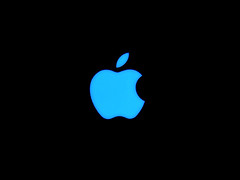The 3G iPhone: Do we have it all wrong?
 Everyone “knows” Apple is making a 3G iPhone, right? I mean, it’s a given, a sure thing, easy money. In fact, many prospective iPhone users are putting off the purchase of the wunder phone until Apple announces the device.
Everyone “knows” Apple is making a 3G iPhone, right? I mean, it’s a given, a sure thing, easy money. In fact, many prospective iPhone users are putting off the purchase of the wunder phone until Apple announces the device.
But what if there will never be a 3G iPhone? At least in the US.
Macworld UK reports on AT&T’s future purchase of 12MHz of wireless spectrum in the 700MHz band that covers 60 per cent of the US. The deal has been approved by the The US Federal Communications Commission, and potentially opens the door for AT&T to provide WiFi access to iPhone users across more than half of the united states, a region far larger than its current 3G service reaches.
There have been reports of AT&T expanding their 3G network, and some future iPhone markets, like Japan, have ONLY 3G service, so odds both AT&T and Apple they are not planning on completely ditching the idea of 3G anytime soon. However, the purchase of that specific band of spectrum is indeed very interesting. As Macworld says:
“The 700MHz spectrum band carries wireless signals three to four times farther than some higher spectrum bands, making it optimal for long-range broadband networks. This is raising speculation that Apple and At&T could be implementing nationwide WiFi rather than 3G.”
There are three main reasons I give this theory some weight. First, I want it to be true. Second, it would fit well into Apple’s secretive corporate strategy. Apple is not used to the long and very public FCC approval process that goes along with releasing a new bit of mobile gadgetry. Odds are, if/when they decide to release a 3G iPhone, they will have to enter a multi-week to multi-month approval process which will become widely publicized. As soon as official news of the 3G iPhone hits the streets, you can likely expect iPhone sales to come to screeching halt in anticipation. There is really no way around this, and perhaps Apple has resigned itself to this fact and is prepared to take its sales lumps for the greater good. But suppose Apple knew about AT&T’s eventual WiFi plans, and in part chose them as carrier for that reason? Apple has always claimed that 3G chips require too much power to work well in the iPhone. WiFi, instead of 3G, will allow nation-wide broadband internet speeds without Apple having to modify the iPhone, alienate last year’s iPhone customers, and will allow Apple to avoid any new FCC approvals and subsequent iPhone sales hits.
Finally, the idea of a nation-wide WiFi network brings me to the third reason I think this could happen… the iPod touch. Apple has already said they view the touch as a mobile development platform as much as the iPhone. If AT&T were able to provide a nation-wide WiFi network, many iPod touch users would jump at the chance to pay them a monthly fee to be able to access it. Of course, its success would all depends on how much AT&T decides to charge for the service. At $10 a month, every student from 6th grade up would rush out to get a touch. For $20 a month, plus the ability to tether the touch to a laptop to gain mobile WiFi access, likely every college student and Mac business professional would snap one up. Plus, Apple could charge touch users an extra $20 for the tethering application, just as with the recent application bundles. In fact this would likely help spur a boon in 3rd Party applications Apple can sell via iTunes to both touch and iPhone users.
But why stop at tethering? Perhaps for $30 a month, you could access the WiFi directly from your MacBook without a 3rd party wireless card!
Admittedly this is pure speculation combined with a healthy dose of wishful thinking, as I want to pick up a current 16 GB model and not end up crying into my iPhone in 4 months if Apple releases a 3G iPhone. But the potential increased revenue streams which both AT&T and Apple could realize would be major. Imagine using WiFi on your laptop out in the field without a 3rd party card, connecting your home iMac to the internet wirelessly, without the need for wired service running to your home, and of course using your iPhone or iPod touch anywhere there’s cell service to access the web.
Apple’s recent talks with Spanish WiFi company FON, which provides country-wide WiFi in many parts of the world via shared WiFi, also suggest Apple is at least interested in the idea of all its gadgets being able to access the internet.
As always, I leave it to you, faithful Macenstein readers, to tell me how wrong am I about this, as I know your collective wisdom on the technical aspects of such a deal will likely punch holes in my “wouldn’t it be cool” scenario. What am I missing here?







0 comments:
Post a Comment